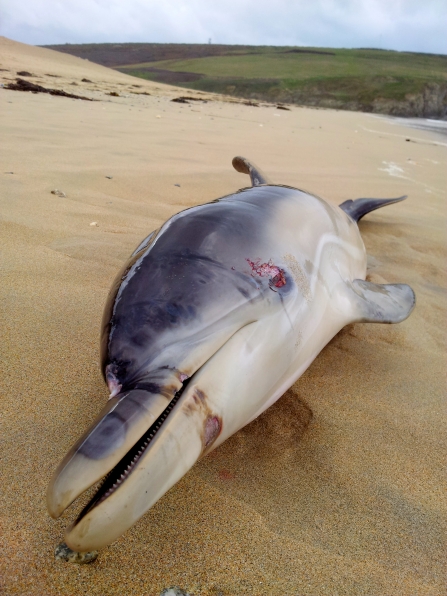Over the reporting period, researchers from the collaborative UK Cetacean Strandings Investigation Programme (CSIP) recorded 21 different cetacean species – nearly one-quarter of the total currently known to science – as well as six species of marine turtle and several species of large-bodied sharks.
Cornwall Wildlife Trust Marine Strandings Network works in partnership with CSIP to record and monitor strandings in Cornwall, as part of the UK wide project. The county-wide network has been recording strandings in Cornwall and the Isles of Scilly for over 27 years, thanks to the dedication and hard work of hundreds of volunteers.
The report highlights that 2017 was sadly a record-breaking year for cetacean strandings in the UK, and this was replicated in Cornwall with 255 animals washing ashore on Cornish beaches during that year. During the seven years between 2011 and 2017, there was a 15% increase in cetacean strandings across the UK, partly due to the increase in short-beaked common dolphin strandings in the southwest, mainly in Cornwall.

